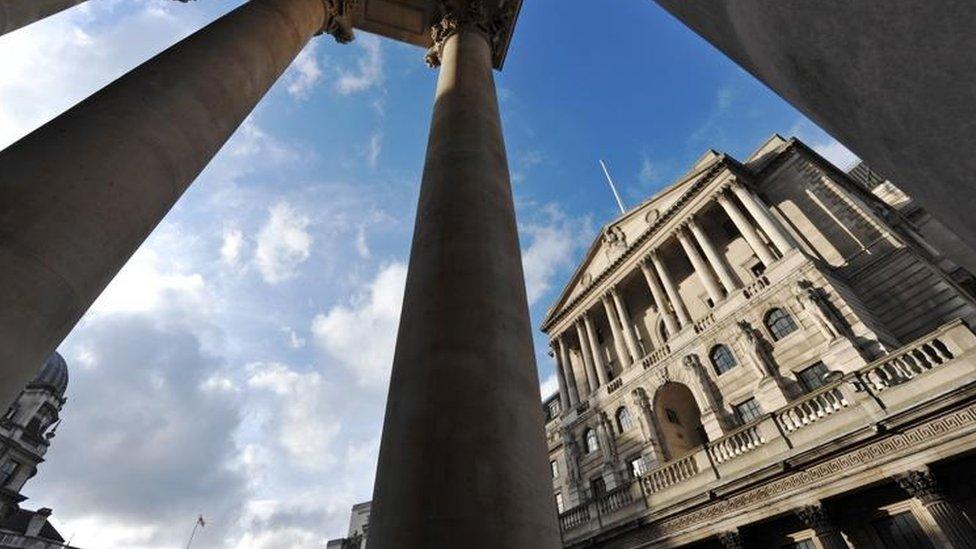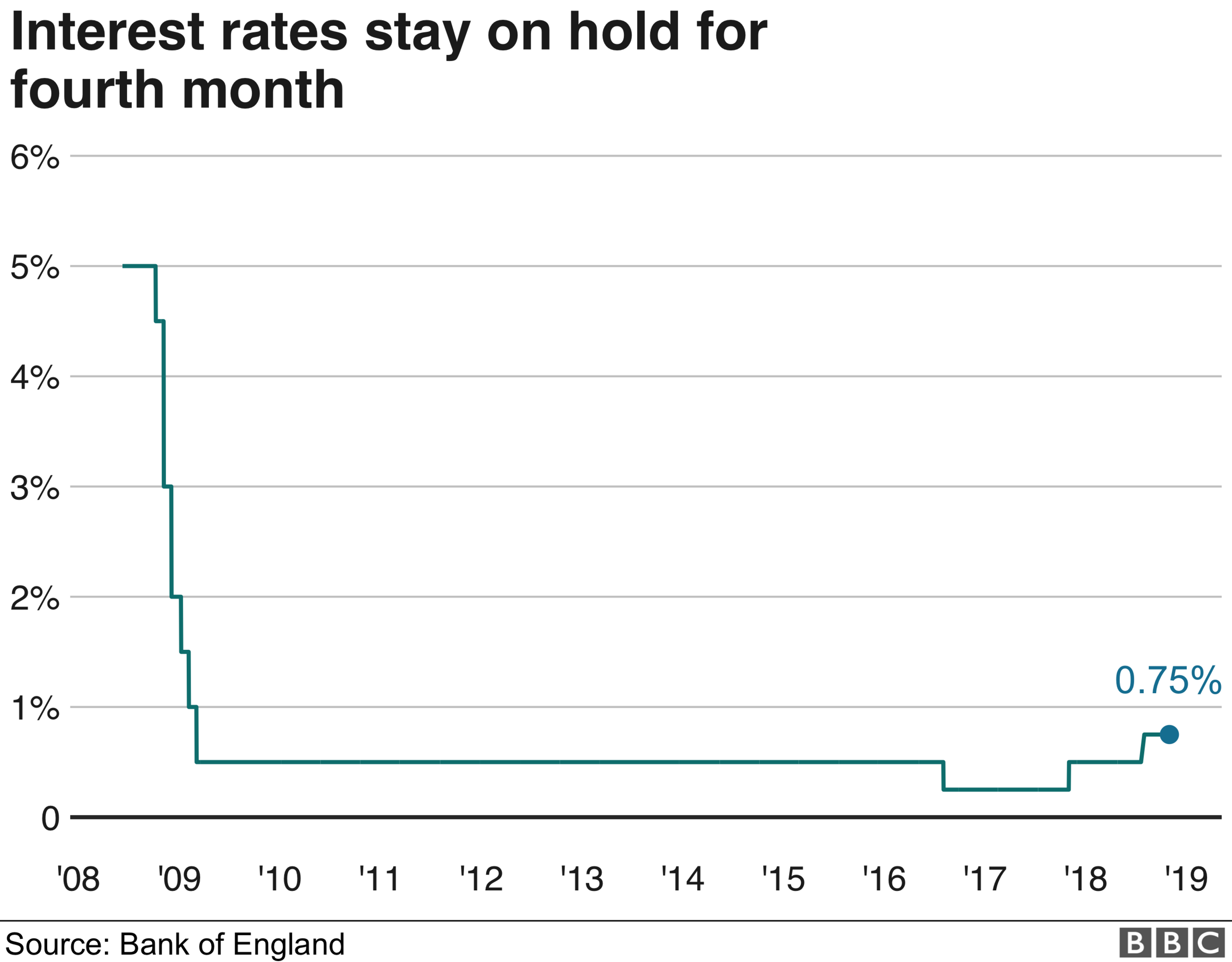Bank cuts growth forecast amid Brexit worries
- Published
- comments

The Bank of England has cut its UK growth forecast and warned a lack of Brexit clarity is hitting the economy.
The Bank said uncertainty over the UK's departure from the EU had "intensified considerably" over the past month.
Against a backdrop of weaker global growth, the Monetary Policy Committee (MPC) voted, external unanimously to keep interest rates at 0.75%.
It said the economy was likely to grow by 0.2% in the final quarter of 2018, down from an earlier forecast of 0.3%.
That follows growth of 0.6% in the previous quarter.
The Bank expects slower economic growth to continue into 2019.
What next for rates?
The Bank of England last raised interest rates in August to 0.75%, but has been reluctant to push them higher while uncertainty remains over Brexit.
But if there is a deal, economists say the Bank is likely to make a move.
"We continue to think that the MPC won't wait for signs of a recovery to emerge in the data and will raise Bank Rate to 1.0% in May," said Samuel Tombs, Chief UK Economist at Pantheon Macroeconomics.
Paul Dales, Chief UK Economist at Capital Economics, sees a sharp increase in rates, if there is a "smooth" Brexit outcome.
"Our money is currently on a faster rebound in GDP growth prompting the Bank to raise rates by 0.25% three times next year and two more times in 2020," he said.
The UK government's decision to abandon a vote on the Brexit deal last week dragged down UK share prices and triggered a drop in the value of the pound.
Commercial bank funding costs had also "risen sharply", the Bank noted, which could push up consumer borrowing costs.
The Bank said the outlook for pay was brighter, with wages growing faster than policymakers expected in November.
Measures announced in the Budget at the end of October, including a multi-billion pound funding boost for the NHS, would lift growth by 0.3% over the next few years, the Bank said.


Lower oil prices were likely to push inflation below the Bank's 2% target by the end of the year. Policymakers expect inflation to remain there into the start of 2019.
A separate Bank survey suggested that business services firms, including law and accountancy companies, believed activity could slow "sharply" in the event of a no-deal Brexit.
The survey also indicated that Black Friday sales had "failed to meet many retailers' expectations" as cautious consumers kept spending down ahead of Christmas.
While business surveys suggest weak growth in the months ahead, the Bank noted that it was "it was possible that these surveys might be overstating the extent of any slowing".

Analysis:
By Andy Verity, BBC economics correspondent
In the latest from the Bank of England's interest rate setters, it's not what they did that's eye-catching - interest rates stayed the same.
It's what they said.
Some of it you already knew. "Brexit uncertainties have intensified considerably since the last meeting."
You probably also knew sterling has depreciated further and is more volatile.
What you might not have known is that it's costing banks more to fund themselves - i.e. to borrow cash - and it's also costing corporations more in interest to borrow funds from international investors.
Businesses are investing less and it's likely to stay that way for months.
The MPC has cut its forecast of economic growth for the fourth quarter of 2018 from 0.3% to 0.2%. And while inflation may dip below 2% in the coming months, beyond that inflation expectations are higher based on higher pay rises.
Assuming a smooth Brexit, "an ongoing tightening of monetary policy [rises in interest rates]… at a gradual pace and to a limited extent, would be appropriate".
But these days that assumption is in serious doubt - and rates may have to be cut.
To those who accuse the Bank of England of exaggerating the potential harm of a no-deal Brexit, the message is clear. "Bah, Humbug!"

- Published20 December 2018

- Published19 December 2018
